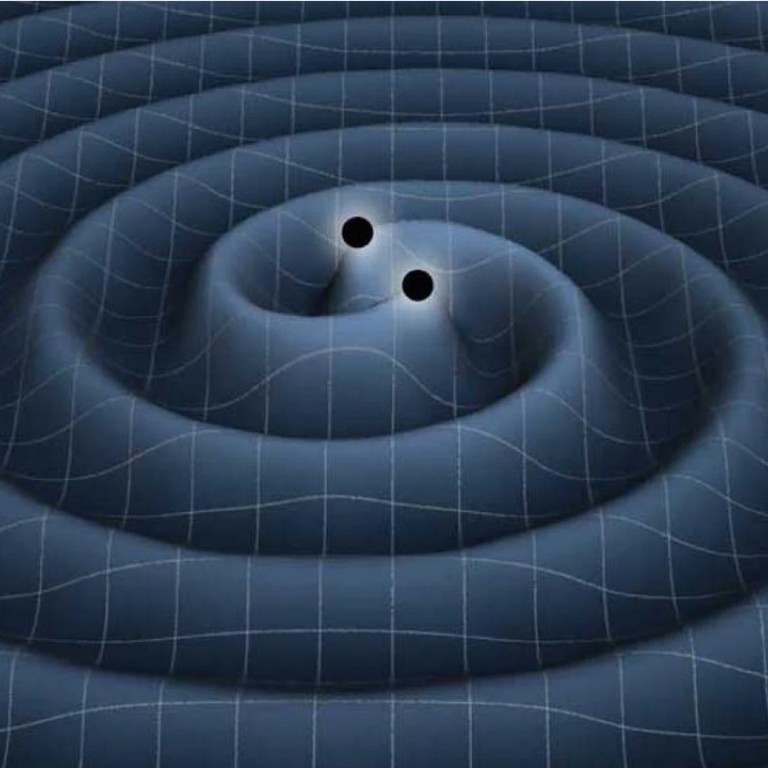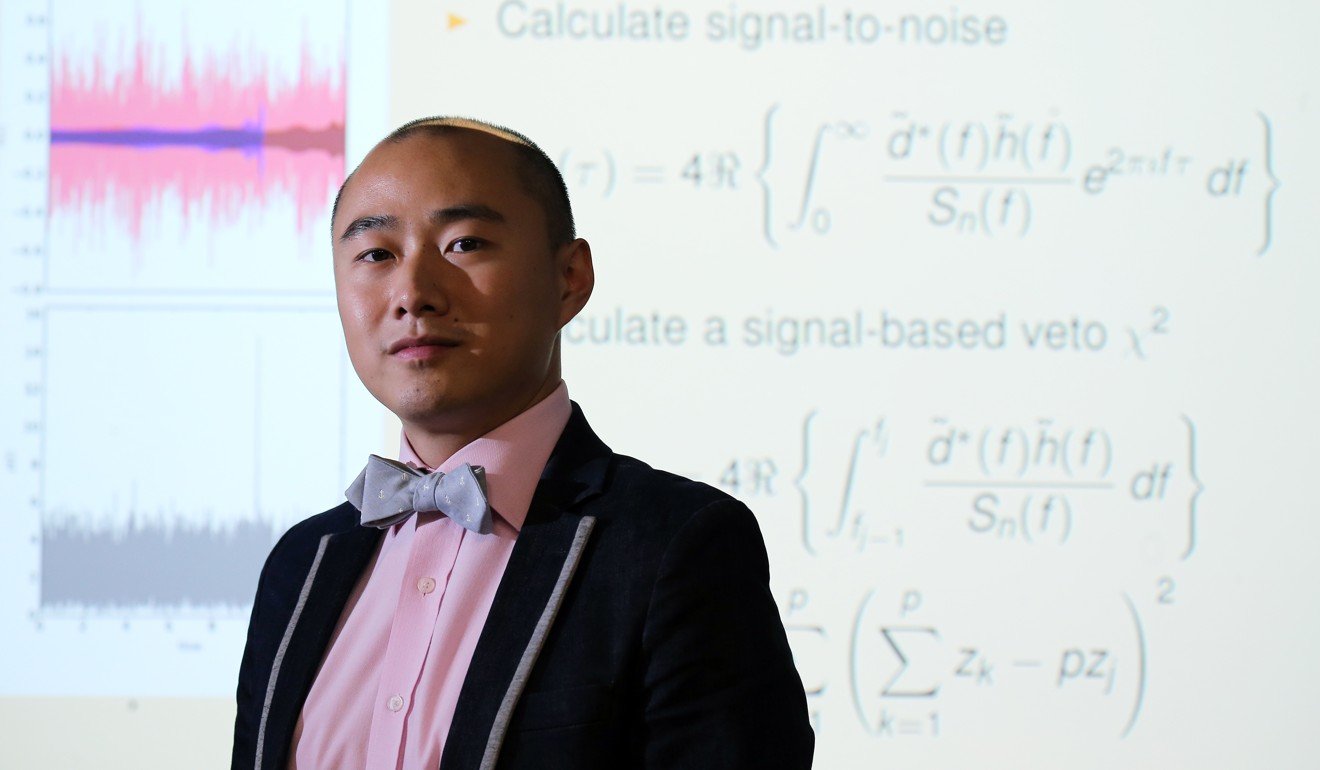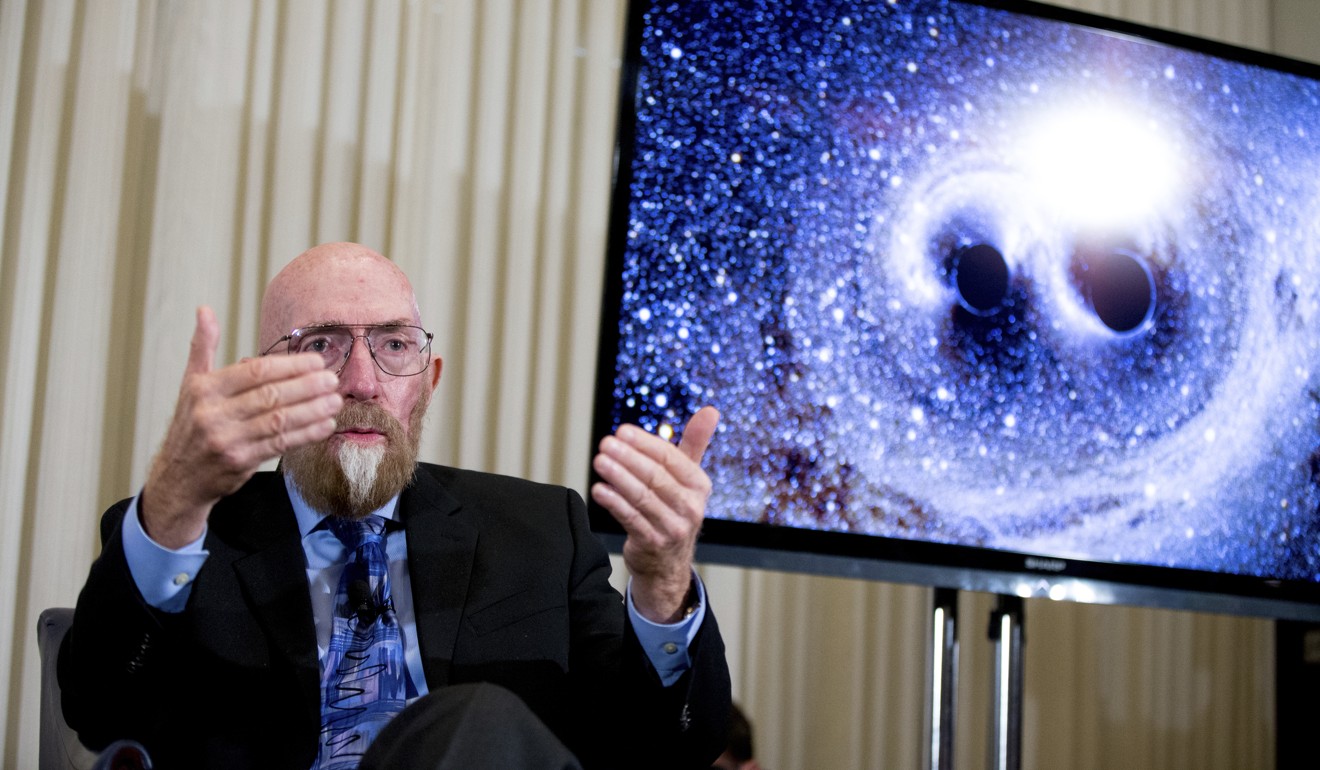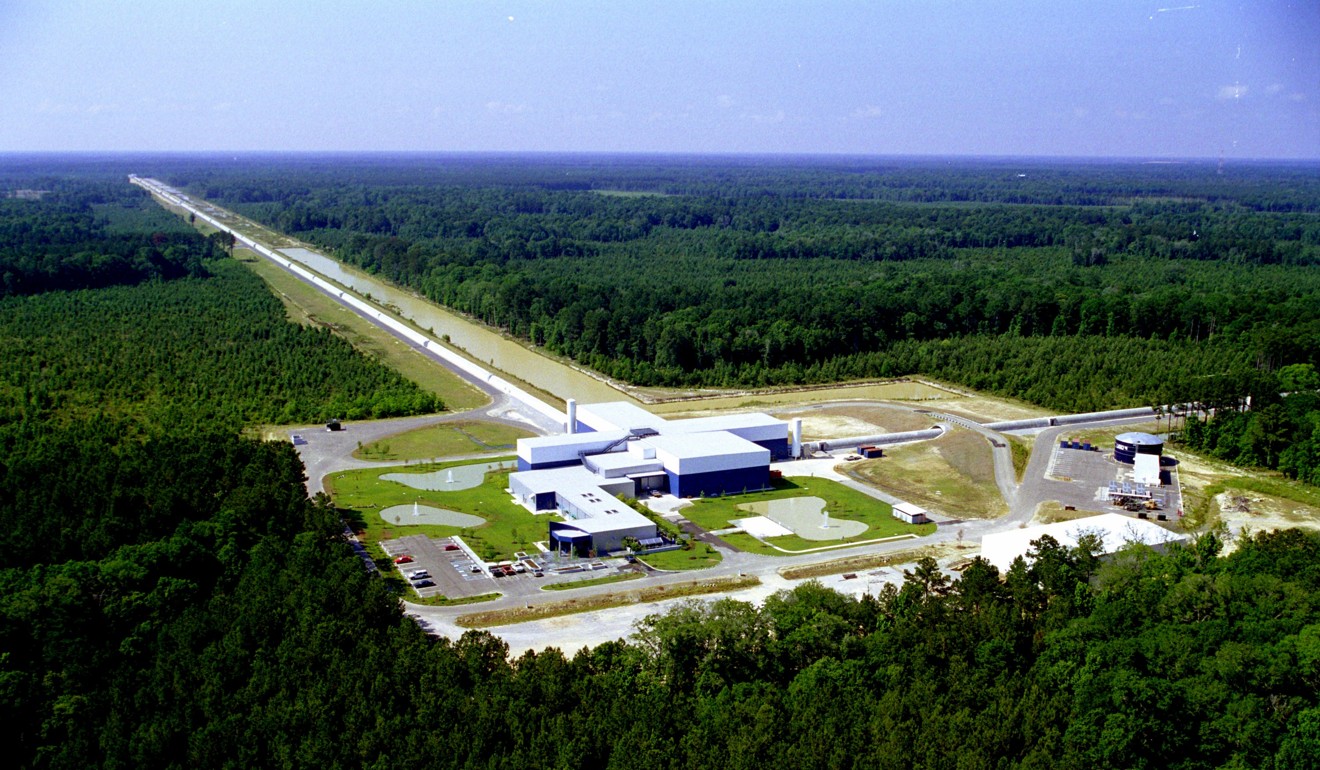
Nobel Prize-winning discovery of gravitational waves sparks thirst for physics at Chinese University, scientist on project says
Historic detection of ripples sent through space-time provides boost for research efforts, professor says
The Nobel Prize-winning discovery of gravitational waves – ripples in space-time caused by powerful energetic processes in the universe – has reinvigorated interest in physics at the Chinese University of Hong Kong, says a scientist based at the institution who was involved in the historic project.
“Ever since the detection of the waves, and even a little before that, we’ve been seeing a huge increase in student interest and students applying not just to this research group but other astronomy research groups,” said Professor Tjonnie Li, a theoretical physicist at the university’s physics department.
Detectors of gravitational waves win physics Nobel Prize
In September 2015, after decades of work, the Laser Interferometer Gravitational Wave Observatory (LIGO) in the United States made a groundbreaking discovery when it detected the ripples in the fabric of space-time – just as Albert Einstein predicted in his general theory of relativity a century ago.
The waves detected were caused by two colliding black holes a billion light years away.
On Tuesday, Rainer Weiss of the Massachusetts Institute of Technology, and Kip Thorne and Barry Barish of the California Institute of Technology, won the Nobel Prize in Physics for their work on the LIGO.

Li, 30, the only scientist in Hong Kong chosen to join a 1,000-member LIGO consortium back in 2009, watched the Nobel announcement live with his team and celebrated by popping champagne.
The Chinese University team contributed important data analysis to the LIGO project and helped develop algorithms to identify gravitational wave signals from “noise”.
Gravitational waves: Hong Kong scientist involved in breakthrough hopes it will propel his university to greater things
“I’ve been doing this for eight years. As a scientist, my dream was always to do research that would be remembered in history,” he said. “To have my research be part of something that won the Nobel Prize, I have achieved it.”

Li said that while most of the public would not grasp its significance, the detection of the waves – confirmed last year with “five sigma” confidence – nevertheless heralded a huge leap for science and had unlocked new ways to assess other phenomena in the cosmos, from neutron star collapses to the secrets of the big bang.
“This will be the beginning of what will be a revolution in our understanding of the universe, because we’re looking at it in such a radically different way than before,” Thorne told the Post in an interview last year.
The 100-year journey to prove Einstein’s theory about gravitational waves
Li’s own research group has been growing exponentially since the LIGO breakthrough.
“It started with one or two researchers, then four, and now two years later, we are at 15. That’s the scale of the interest,” he said.
“The number of applicants doing research is just the end stage. Our goal is to inspire all the layers in between, starting from as low as primary school, just to get them excited about science in general.”

Li hoped the Hong Kong government would invest more in science – the city currently spends less than 1 per cent of gross domestic product on research and development – and encourage more youngsters to recognise how beneficial science was to their career development.
The situation for science education was deemed dire enough earlier this year for the University of Hong Kong to scrap courses in astronomy and a joint degree in mathematics and physics.
Gravitational waves for dummies: what are they and why are scientists so excited about them?
“In Hong Kong, the better educated you are in science, the harder it is to find a job. In [the West], it’s the other way round. Investment banks, Google and Facebook will be queuing up to hire you,” he said.
“It depends on how mature your high-technology sector is. Hong Kong’s economy is still service- based and there’s little demand for PhDs. But if we really want to move into hi-tech, we will need these people.”
Hong Kong leader Carrie Lam Cheng Yuet-ngor’s maiden policy address, due to be delivered next Wednesday, is expected to reveal measures to boost the city’s innovation and technology sector to “catch up” with global trends.

